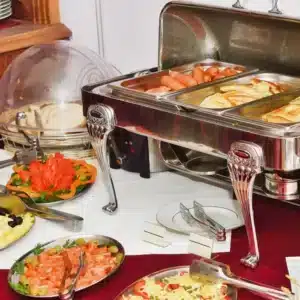Some people describe their childhoods with golden light and laughter. Dinners at the table. Bicycles in the driveway. Stories before bed.
Mine didn’t look like that. Not until Grandma Grace came and changed the script.
My mom, Delia, lived her life chasing bad men and worse instincts. My sister, Cynthia, mirrored her with more eyeliner and sharper words. I was the quiet one. A shadow in the background. A child born into noise but made of silence.
At six, Grandma Grace showed up, packed my small bag, and said, “You’re coming home with me, Tom.”
And she meant it. Home wasn’t a place. It was her.
She wrote me notes in my lunchbox. She came to every school play and piano recital, no matter how bad I was. She sold her favorite vintage necklace to help pay for my textbooks in college. Her voice was never raised, but when she spoke, everyone listened.
When she died, I was 26, but I felt six again. Lost. Disoriented. Alone.
At the funeral, I sobbed. Cynthia wore designer black and fake tears. Delia cried the loudest, but only when she had an audience.
Then came the will.
We met in a lawyer’s office that smelled like dust and disinterest. Delia sat poised, ready to redecorate a house she didn’t yet own. Cynthia scrolled on her phone, barely present. I sat still, hoping somehow Grandma Grace might walk through the door.
The lawyer read out the terms.
Delia got the house.
Cynthia got the car.
And me? I got an envelope.
“For you, Tom. Our photo in a frame. It’s the one from the zoo, when you were 8 years old. Love you forever, sweet boy. Love, Grandma G.”
That was it.
Delia sneered. Cynthia laughed.
I left without a word, clutching the envelope like it could explain something the room never would.
The next morning, I went to the house. Delia was barking orders to the movers, claiming everything as hers. I ignored her and went straight to the hallway, to that photo. Me, smiling. Her, mid-laugh. Giraffes behind us.
I took it down.
“Sentimental trash,” Delia snapped from the kitchen. “You were always too soft.”
She had no idea. But she would.
At home, I stared at the frame. Old. Cracked. It deserved better.
I remembered the walnut frame my coworker, Marla, had given me for my birthday. “For something that matters.”
I opened the old frame to transfer the photo. But behind the backing, I felt something stiff. Another envelope, taped to the inside.
Inside it: stock certificates. Bank statements. A key.
And one line: “Real treasure isn’t loud. Love, Grandma G.”
I didn’t cry. I couldn’t. Not yet.
I walked into my office the next morning and resigned. No goodbyes. No cake. I stopped by the bank.
The safety deposit box held more than I ever imagined: five fully paid-off rental properties in my name. Shares in a shipping company. And a deed.
To the land beneath Delia’s house.
Grandma Grace had played chess, not checkers.
When I told Delia, she exploded.
“You can’t do this!”
“I own the land. I’m your landlord. You can’t sell it.”
“She always favored you!”
“She raised me. You left.”
Click.
Cynthia didn’t fare better. The car was worthless without the back taxes paid. Rhett, her gambler boyfriend, had run off with what little she had left.
And still, I helped. I bought the house from Delia for a fair price. No lawyers. No games.
Not for her. For Grandma Grace.
But I didn’t move in.
Instead, I renovated it with Omar, a contractor with kind hands and an even kinder heart. We kept the crooked stair. The green glass in the pantry. The floral tiles.
We reopened it as Grace’s Corner.
A soup kitchen. A reading nook. A warm place for anyone who needed one.
We served her pie recipes. Her tuna melts. Her peppermint tea. Her photo from the zoo? Hung by the door.
And people came. Hungry people. Lonely people. Kids who needed stories. Mothers who needed five minutes of peace.
On Thursdays, we gave free haircuts in the backyard. Dani, an old classmate, volunteered. She said Grace’s house had a soul. She was right.
One morning, Cynthia came. Humbled. Shaky.
“I need help. Rhett’s gone. I have nowhere.”
“No money,” I said. “But you can stay. Work. Be part of something. Be someone Grace would’ve been proud of.”
“I don’t know how.”
“That’s okay,” I told her. “Neither did I. Grace taught me.”
She blinked, then nodded.
And as I turned to go inside, I heard the door close behind her. Not slammed. Just gently shut.
Not like someone giving up.
Like someone stepping in.





